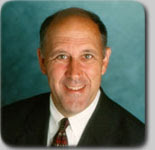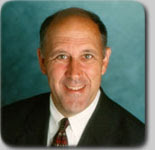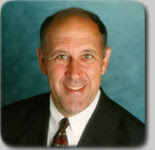by jboullion | Mar 16, 2009 | Uncategorized
From an article by Jim Massey in The Country Today:
PLATTEVILLE – Tim Zauche believes a community manure digester could be a win-win situation for UW-Platteville and dairy farmers near the city.
The UW-Platteville chemistry and engineering-physics professor is studying the feasibility of building an anaerobic digester on campus or at the university’s farm to convert manure into a variety of energy sources. Area farmers have expressed interest in the concept, he said.
“The reason I got into this is I want to help farmers become more profitable and help the environment,” Zauche said. “If we’re not going to help the farmers’ bottom line, why even do it?”
Zauche met with about 25 Platteville-area dairy farmers earlier this year to discuss the project.
“They were like, ‘Hey, milk prices are down, we’re strapped for capital. We don’t want to own (the digester), but we can see the benefits of using it,’ ” Zauche said.
Zauche said he’s not sure who would own the digester. It could be set up as a farmer cooperative, owned and operated by the university, or leased to a private firm that would operate it.
He estimated it would cost $1.5 million to $2 million for a digester that would process manure from 1,200 cows. About a dozen farmers are seriously interested in the project, Zauche said.
One of those farmers is Steve Weigel, who operates a 100-cow dairy farm about a mile north of Platteville. He said he would like to discontinue hauling his manure daily and haul to a digester instead.
by jboullion | Mar 16, 2009 | Uncategorized
From an article by Rick Barrett in the Milwaukee Journal Sentinel:
Todd Nelson, owner of the Kalahari Resort, fires off in staccato fashion the belt-tightening measures taken at his Wisconsin Dells water park.
• Seventy employee cell phones eliminated. Saving: $4,500 a month.
• Wristbands for water park customers changed to a cheaper model. Saving: $60,000 a year.
• A new laundry water recycling system: $70,000 a year.
• Six company cars sold, saving thousands of dollars in fuel, insurance and maintenance.
• More than 100 employee e-mail addresses canceled. Saving: $8,000 annually in account fees.
• Employees attending trade shows now stay at cheaper hotels rather than the convention hotel.
“They can drive an extra three miles to a Comfort Inn,” Nelson said.
For most companies, cost-cutting is key to surviving this recession. Layoffs and job reductions have been the most painful measures, but other less dramatic steps also can result in significant saving and can help a company’s long-term health. . . .
Some companies have found huge savings through energy conservation.
The Kalahari installed a 103-panel solar hot water system that heats 60% of the water in the resort’s laundry room.
Low-flow shower heads were installed in guest rooms, reducing water consumption by 2.46 million gallons per year.
The resort has a goal of cutting its electric bill by 30%, using dozens of measures such as motion-sensor lights in public areas.
by jboullion | Mar 16, 2009 | Uncategorized
From an editorial in the Eau Claire Leader-Telegram:
The issue: A proposed program would allow Xcel Energy customers to voluntarily pay extra for renewable power.
Our view: Bills would rise, but the program would give all of us a role in weaning our nation from fossil fuels.
In these days of economic uncertainty, paying more than you have to on a monthly bill seems like the equivalent of letting money go up in smoke.
But when it comes to utility costs, the opposite actually is true.
Xcel Energy’s Wisconsin customers may soon have the option of paying a bit extra for their electricity to spur the production of more energy from “green” sources such as wind, solar and biomass. Boosting the use of renewable energy reduces reliance on nonrenewable sources, especially greenhouse-gas-producing coal. The price of renewable energy may be higher now, but spending more in the short term means less of our money will be converted into smoke – or at least carbon dioxide – in the long run. . . .
As noted earlier, customers who worry about the size of their existing bills may be skeptical of voluntarily paying more. That’s understandable, and Xcel estimates only 3 to 5 percent of its Wisconsin customers will enroll. However, the higher the participation, the less costly renewable power becomes: Ten percent of Madison Gas and Electric’s customers are enrolled in a similar program, and the premium they pay for wind power dropped from $2.67 to $1 per 100 kilowatts between 1999 and 2008.
Like any complex problem, weaning ourselves from fossil fuels – and the environmental havoc they bring – will take a concerted effort on many fronts. Big players such as utility companies, businesses and government regulators all have roles – but so does anyone who flips a light switch.

by jboullion | Mar 13, 2009 | Uncategorized
Wisconsin Wind Energy Supply Chain Seminar
Appleton, Wisconsin
March 31, 2009
Wisconsin Wind Energy Supply Chain Seminar will focus on wind turbine manufacturing challenges and opportunities in the state of Wisconsin. Over 8,000 components and parts are used in the construction of utility-scale wind turbines, offering opportunities for a wide range of manufacturers and service providers in Wisconsin. The existing manufacturing and service industries, as well as academic and other institutions in Wisconsin makes it an ideal state to benefit from the growth of the wind energy industry.
Hear from The Honorable Jim Doyle Governor of Wisconsin
Tuesday, March 31, 1:30 PM – 2:00 PM

Governor Jim Doyle is focused on creating opportunity for all of Wisconsin’s people and is building upon current efforts to create jobs, make America energy independent, and address the global climate crisis.
Complete program. Register online.

by jboullion | Mar 13, 2009 | Uncategorized
Wisconsin Wind Energy Supply Chain Seminar
Appleton, Wisconsin
March 31, 2009
Wisconsin Wind Energy Supply Chain Seminar will focus on wind turbine manufacturing challenges and opportunities in the state of Wisconsin. Over 8,000 components and parts are used in the construction of utility-scale wind turbines, offering opportunities for a wide range of manufacturers and service providers in Wisconsin. The existing manufacturing and service industries, as well as academic and other institutions in Wisconsin makes it an ideal state to benefit from the growth of the wind energy industry.
Hear from The Honorable Jim Doyle Governor of Wisconsin
Tuesday, March 31, 1:30 PM – 2:00 PM

Governor Jim Doyle is focused on creating opportunity for all of Wisconsin’s people and is building upon current efforts to create jobs, make America energy independent, and address the global climate crisis.
Complete program. Register online.

by jboullion | Mar 13, 2009 | Uncategorized
Wisconsin Wind Energy Supply Chain Seminar
Appleton, Wisconsin
March 31, 2009
Wisconsin Wind Energy Supply Chain Seminar will focus on wind turbine manufacturing challenges and opportunities in the state of Wisconsin. Over 8,000 components and parts are used in the construction of utility-scale wind turbines, offering opportunities for a wide range of manufacturers and service providers in Wisconsin. The existing manufacturing and service industries, as well as academic and other institutions in Wisconsin makes it an ideal state to benefit from the growth of the wind energy industry.
Hear from The Honorable Jim Doyle Governor of Wisconsin
Tuesday, March 31, 1:30 PM – 2:00 PM

Governor Jim Doyle is focused on creating opportunity for all of Wisconsin’s people and is building upon current efforts to create jobs, make America energy independent, and address the global climate crisis.
Complete program. Register online.



